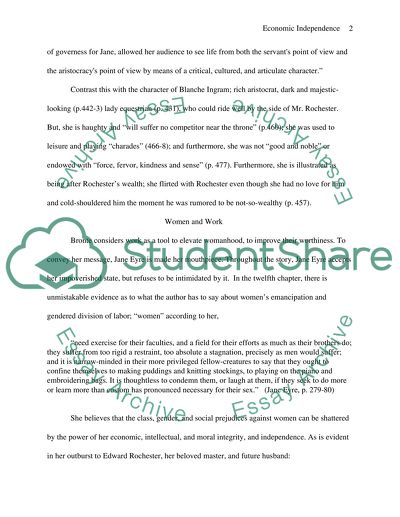Cite this document
(“Women, Work and Worthiness in Jane Eyre Essay Example | Topics and Well Written Essays - 1000 words”, n.d.)
Retrieved from https://studentshare.org/literature/1519826-women-work-and-worthiness-in-jane-eyre
Retrieved from https://studentshare.org/literature/1519826-women-work-and-worthiness-in-jane-eyre
(Women, Work and Worthiness in Jane Eyre Essay Example | Topics and Well Written Essays - 1000 Words)
https://studentshare.org/literature/1519826-women-work-and-worthiness-in-jane-eyre.
https://studentshare.org/literature/1519826-women-work-and-worthiness-in-jane-eyre.
“Women, Work and Worthiness in Jane Eyre Essay Example | Topics and Well Written Essays - 1000 Words”, n.d. https://studentshare.org/literature/1519826-women-work-and-worthiness-in-jane-eyre.


